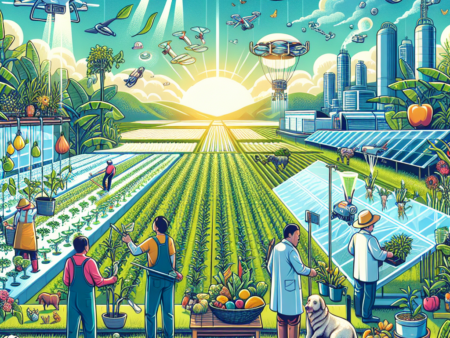Kegiatan sosial masyarakat di tengah pandemi terbatas dan dilakukan dengan protokol kesehatan yang ketat.
Kegiatan Sosial Masyarakat di Tengah Pandemi
-
Table of Contents
Introduction

The COVID-19 pandemic has had a profound impact on societies around the world, including Indonesia. As the virus spread rapidly, governments implemented strict measures to control its transmission, such as lockdowns and social distancing. These measures have disrupted the daily lives of people and have had a significant impact on social activities. However, despite the challenges posed by the pandemic, Indonesian communities have shown resilience and creativity in finding ways to engage in social activities while adhering to health protocols. This article explores the various social activities that have emerged in Indonesia during the pandemic and highlights their importance in maintaining social connections and supporting vulnerable communities.
1. Virtual Social Gatherings
The pandemic has forced people to stay at home and limit physical interactions. However, this has not deterred Indonesians from finding alternative ways to connect with their friends, families, and communities. Virtual social gatherings have become increasingly popular, with people using video conferencing platforms to host events such as virtual parties, game nights, and even religious ceremonies. These virtual gatherings have allowed people to maintain social connections, share experiences, and provide emotional support during these challenging times.
1.1 Virtual Weddings
Weddings are significant events in Indonesian culture, often involving large gatherings of family and friends. However, with restrictions on large gatherings, many couples have turned to virtual weddings to celebrate their special day. Through live streaming platforms, couples can share their wedding ceremonies with their loved ones, ensuring that they can still be part of the joyous occasion while maintaining social distancing measures. Virtual weddings have also become an opportunity for couples to save costs and reduce the environmental impact associated with traditional weddings.
1.2 Online Workshops and Classes
The pandemic has also led to the closure of schools and educational institutions, disrupting the learning process for students. However, many organizations and individuals have stepped up to offer online workshops and classes to ensure that learning continues. These virtual learning opportunities cover a wide range of subjects, from academic courses to creative workshops. They not only provide educational support but also foster a sense of community and connection among participants.
2. Community Initiatives
In the face of the pandemic, Indonesian communities have come together to support each other and provide assistance to those in need. Various community initiatives have emerged, demonstrating the resilience and solidarity of the Indonesian people.
2.1 Mutual Aid Groups
Mutual aid groups have played a crucial role in supporting vulnerable communities during the pandemic. These groups consist of volunteers who provide essential supplies, such as food and hygiene products, to those who are unable to access them. They also offer emotional support and connect individuals with necessary resources. Mutual aid groups have been particularly active in urban areas, where the economic impact of the pandemic has been more severe.
2.2 Community Gardens
Community gardens have gained popularity as a way to promote self-sufficiency and food security during the pandemic. These gardens, often established in public spaces or unused land, allow community members to grow their own fruits and vegetables. They not only provide fresh produce but also foster a sense of community and cooperation among participants. Community gardens have become a source of pride and resilience for many Indonesians, as they reduce dependence on external food sources and promote sustainable practices.
3. Philanthropic Efforts
The pandemic has highlighted the importance of philanthropy in supporting vulnerable communities. Many individuals, organizations, and businesses in Indonesia have stepped up their philanthropic efforts to provide relief and assistance to those affected by the pandemic.
3.1 Donations and Fundraising
Donations and fundraising campaigns have been instrumental in providing financial support to various sectors affected by the pandemic. Many individuals and organizations have contributed funds to purchase medical supplies, support healthcare workers, and provide relief to those who have lost their livelihoods. Social media platforms have played a significant role in facilitating these fundraising efforts, allowing individuals to reach a wider audience and mobilize support quickly.
3.2 Corporate Social Responsibility
Corporate social responsibility (CSR) initiatives have also played a vital role in supporting communities during the pandemic. Many businesses in Indonesia have redirected their resources and expertise to address the immediate needs of affected communities. This includes providing medical supplies, supporting healthcare facilities, and implementing employee welfare programs. CSR initiatives have not only provided essential support but have also enhanced the reputation and goodwill of businesses in the eyes of the public.
Conclusion
The COVID-19 pandemic has presented unprecedented challenges to Indonesian society. However, it has also brought out the resilience, creativity, and compassion of the Indonesian people. Virtual social gatherings, community initiatives, and philanthropic efforts have emerged as powerful ways to maintain social connections, support vulnerable communities, and foster a sense of unity. These activities have not only helped Indonesians navigate the challenges of the pandemic but have also laid the foundation for a more connected and compassionate society in the future. As the world continues to battle the pandemic, the lessons learned from these social activities in Indonesia can serve as inspiration for communities around the globe.







